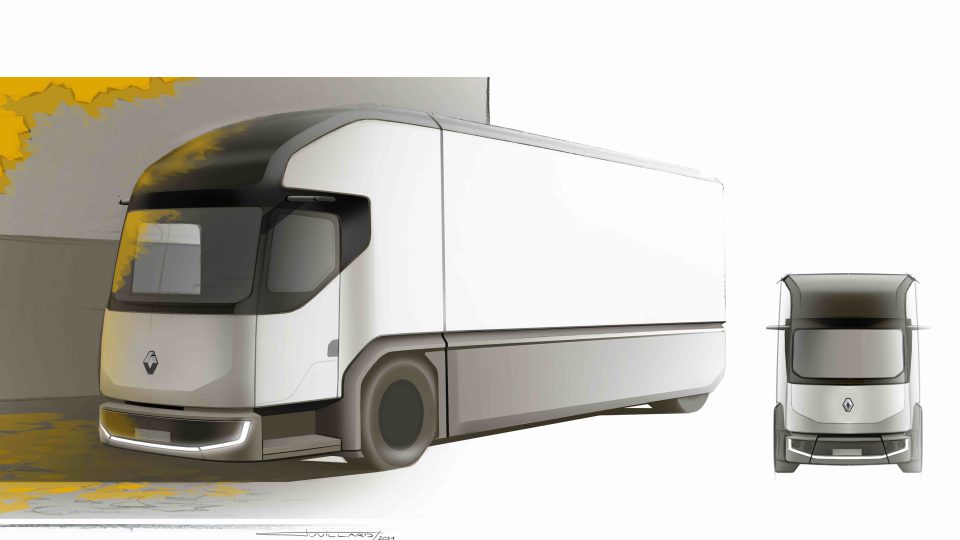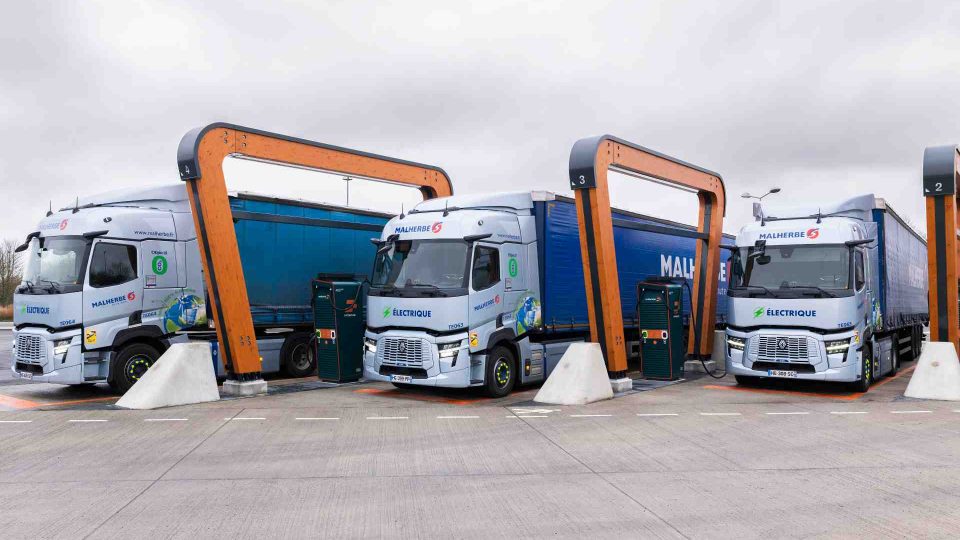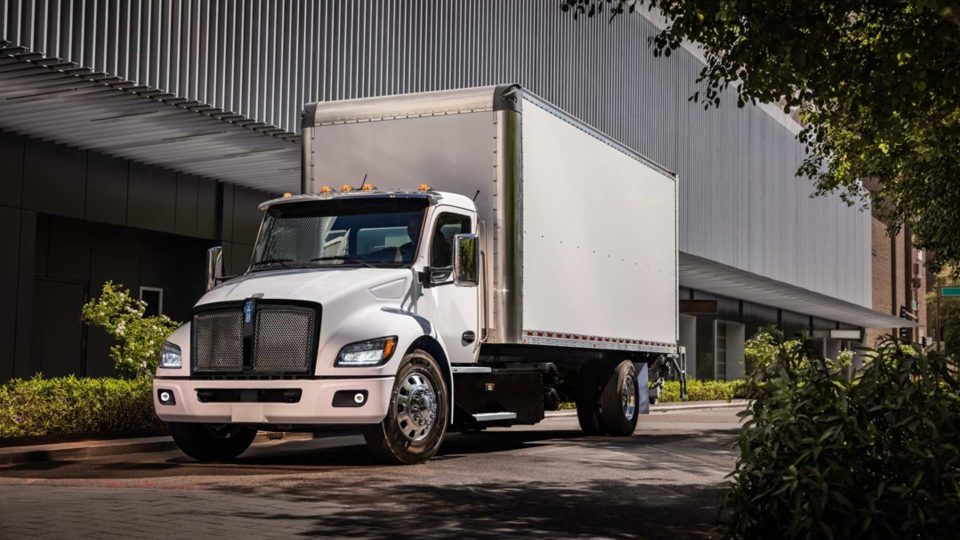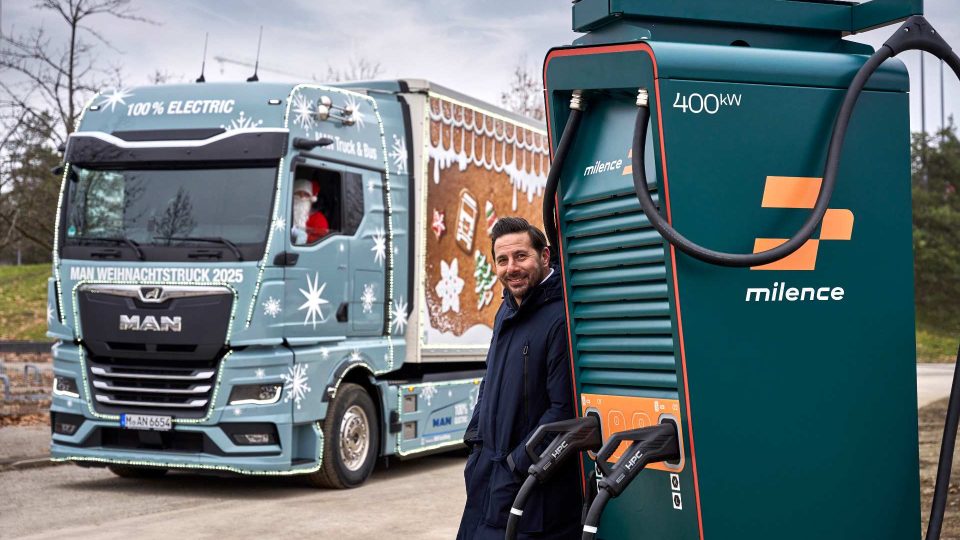How’s Renault Trucks facing the electric challenge? Our report from Blainville-sur-Orne
The electrification strategy brought forward by Renault Trucks includes the adaptation of production processes, the strictly technological development of the electric powertrain, the extension of the range, but also the support to customers not only in financial terms, but also in terms of charging infrastructure and counseling on the optimal use of e-vehicles.
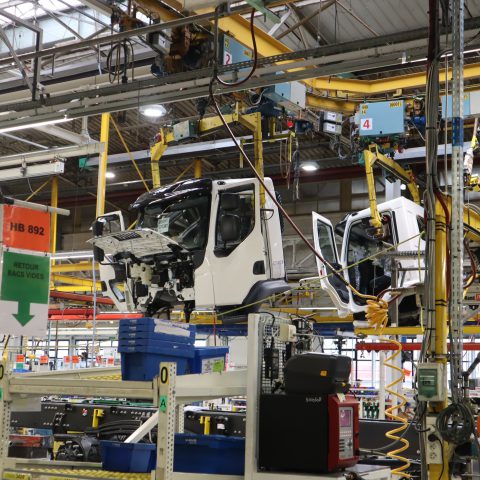
Renault Trucks is getting ready to face the electric challenge, which is now also a must also in the truck sector. The French truck manufacturer organized an event, namely the Electromobility Days, at one of the group’s main plants in Blainville-sur-Orne, Normandy. The aim was to outline its overall strategy addressed at supporting customers in their transition. The Blainville-sur-Orne plant is mainly dedicated to the production of medium-duty distribution trucks, as well as cabs, which are also made for the “cousin” Volvo brand and the Dutch DAF.
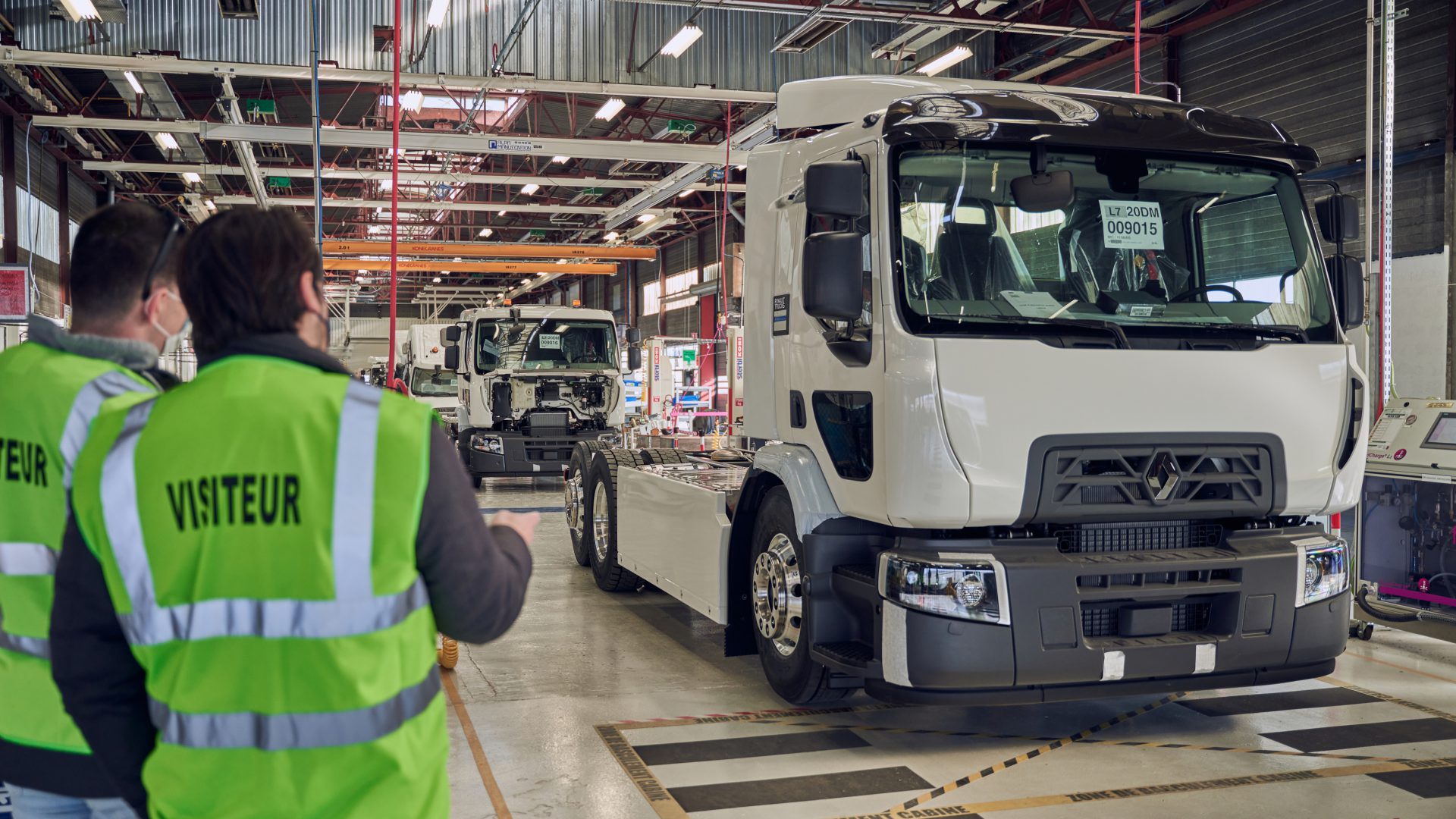
Renault Trucks getting more electric: a broader range coming
Renault Trucks has so far identified the medium-duty segment as its comfort zone with regard to electric vehicles, with the Master trio (3.1 and 3.5 tonnes), D and D Wide (also with low-entry cab) making up a range capable of reaching 26 tonnes of total weight on the ground. A range of vehicles already available and used by several customers in Europe. Now, however, what we have come to know as Z.E. (Zero Emissions) officially becomes E-Tech, with a name borrowed from the car world that has led to a re-design of the electric part of the range. E-Tech will also be the electric versions of the heavy-duty T and C series (regional transport and construction) announced only a few days ago, and which will be made in the Bourg-en-Bresse plant, not far from Lyon, starting in 2023.
Potrebbe interessarti
Renault Trucks and Geodis announce the Oxygen project: a 16-ton electric truck conceived for urban deliveries
What Renault Trucks wanted to communicate strongly is the possibility to rely on an actual brand strategy oriented to the development of electric mobility. This strategy includes the adaptation of production processes, the strictly technological development of the electric powertrain, the extension of the range, but also the support to customers not only in financial terms, but also in terms of charging infrastructure and counseling on the optimal use of e-vehicles. With a decisive strengthening of the territorial network and the presence of staff trained on electric mobility. «We have made clear choices and defined our ambitions with measurable results», said François Savoye, Vice President Electromobility Solution Offer. «The main objectives we have set ourselves are to halve CO2 emissions and 50% of total electric vehicle sales by 2030. We also have the ambition to be first in market share in Europe in the 16-26 ton segment».
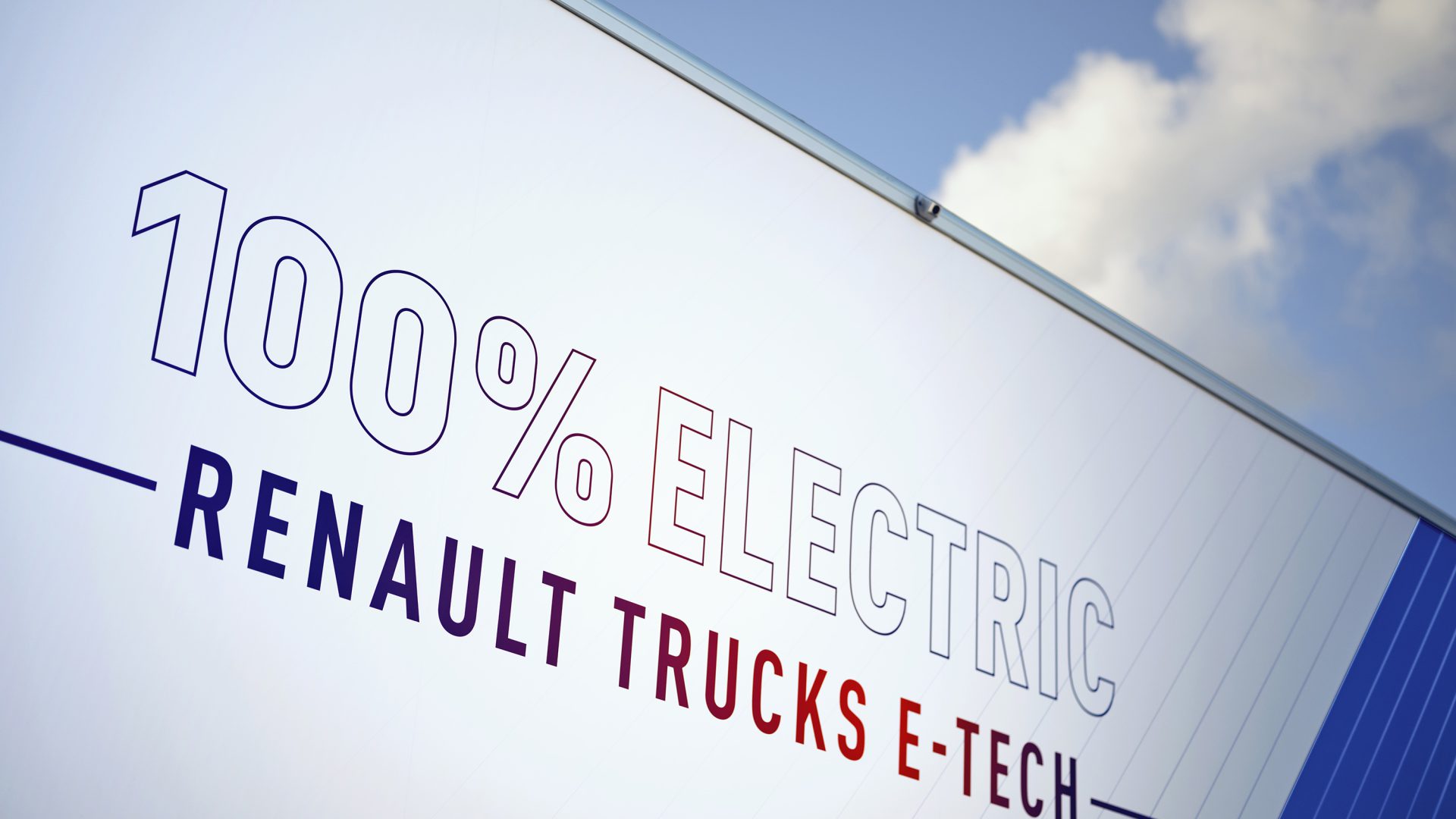
The effectiveness of BEVs compared to other ‘sustainable’ options
Renault Trucks also takes a stand in the technological dispute that, sometimes in a somewhat short-sighted manner, pits electric, hydrogen and biofuels against each other on the road to energy transition. «The availability of blue or green hydrogen (the only ones that guarantee a real reduction in emissions, ed.) will not be guaranteed before the next decade», argues Mr Savoye, who also had his say on biofuels. «They are available in limited quantities and there is the issue of leakage».
The analyses conducted by Renault leave no room for doubt: in terms of energy efficiency, electric is unrivaled and will be the technology of adoption in the regional distribution segment. For the long haul, the application of fuel cells is also being studied, although not in the immediate future. The main difference lies in the availability of recharging infrastructures: while at urban or regional level it is becoming less and less complex to set up an ‘overnight’ recharging depot, we are still far from an acceptable situation for long range. It is no coincidence that Renault Trucks is confident in the ambitious plan that the Volvo Group shares with TRATON and Daimler for the installation of 1,700 charging points in Europe.
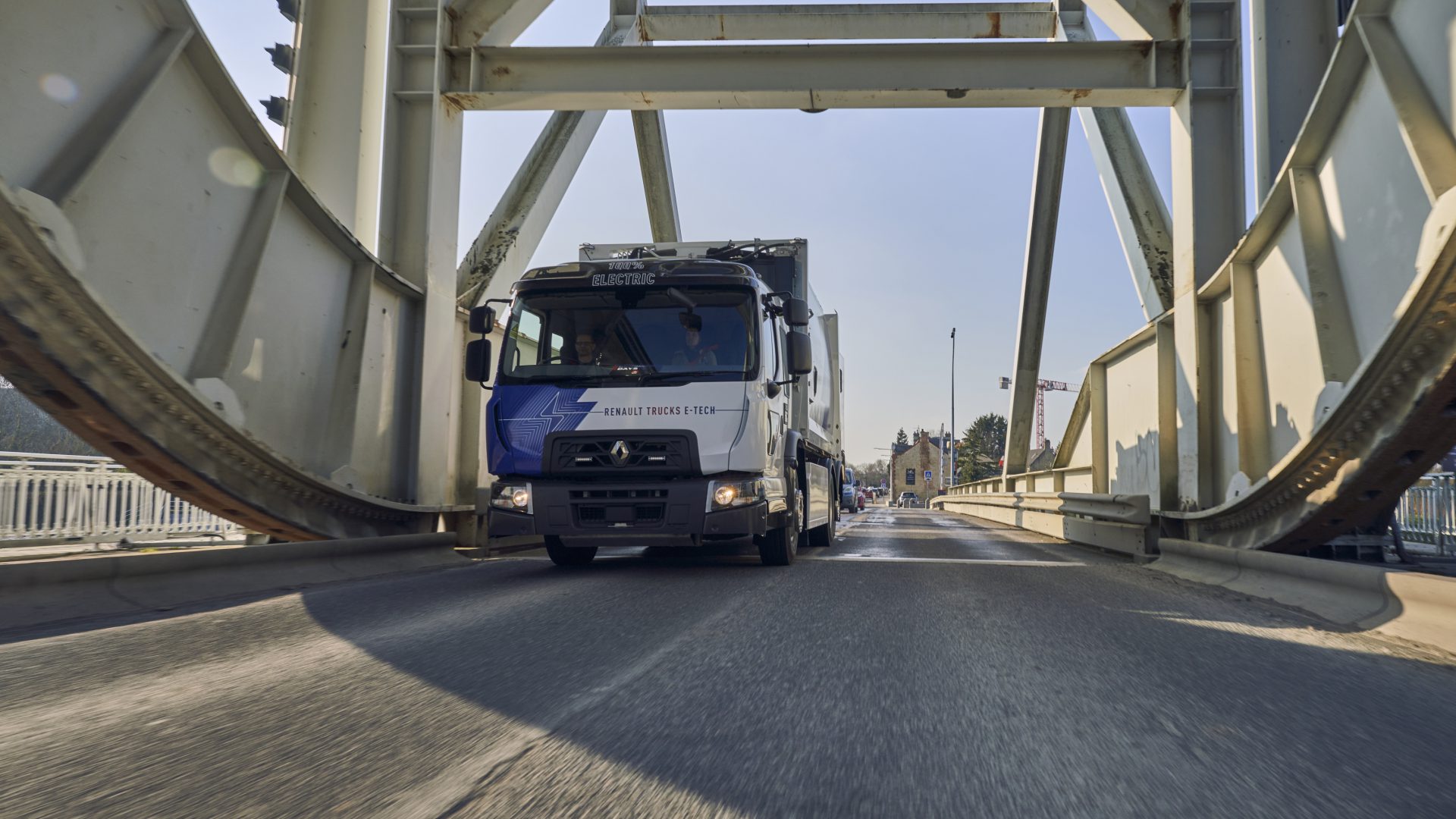
Now able to produce 9 electric trucks every day
Back to production, indeed another piece of the Renault Trucks strategy devoted to electrification. In Blainville-sur-Orne alone, where more than 2,000 people currently work, 286 cabs and 82 trucks are currently manufactured every day. The production capacity of electric vehicles has been increased from 2 to 9 per day within a few months: the lines are shared with traditional vehicles, except for the installation of batteries and the first recharge, carried out in a separate building. «We decided to prioritize electric vehicles also as supply time: the production lines are being adapted to meet the new targets and we now have the most advanced factory in Europe for electrics», continues François Savoye. We visited the assembly line for vehicles of less than 26 tons, a line that employs around 200 people and is capable of producing a vehicle every 3 hours. Here, the series production of electric vehicles (Renault Trucks and Volvo Trucks) alternates with that of highly customized professional vehicles.
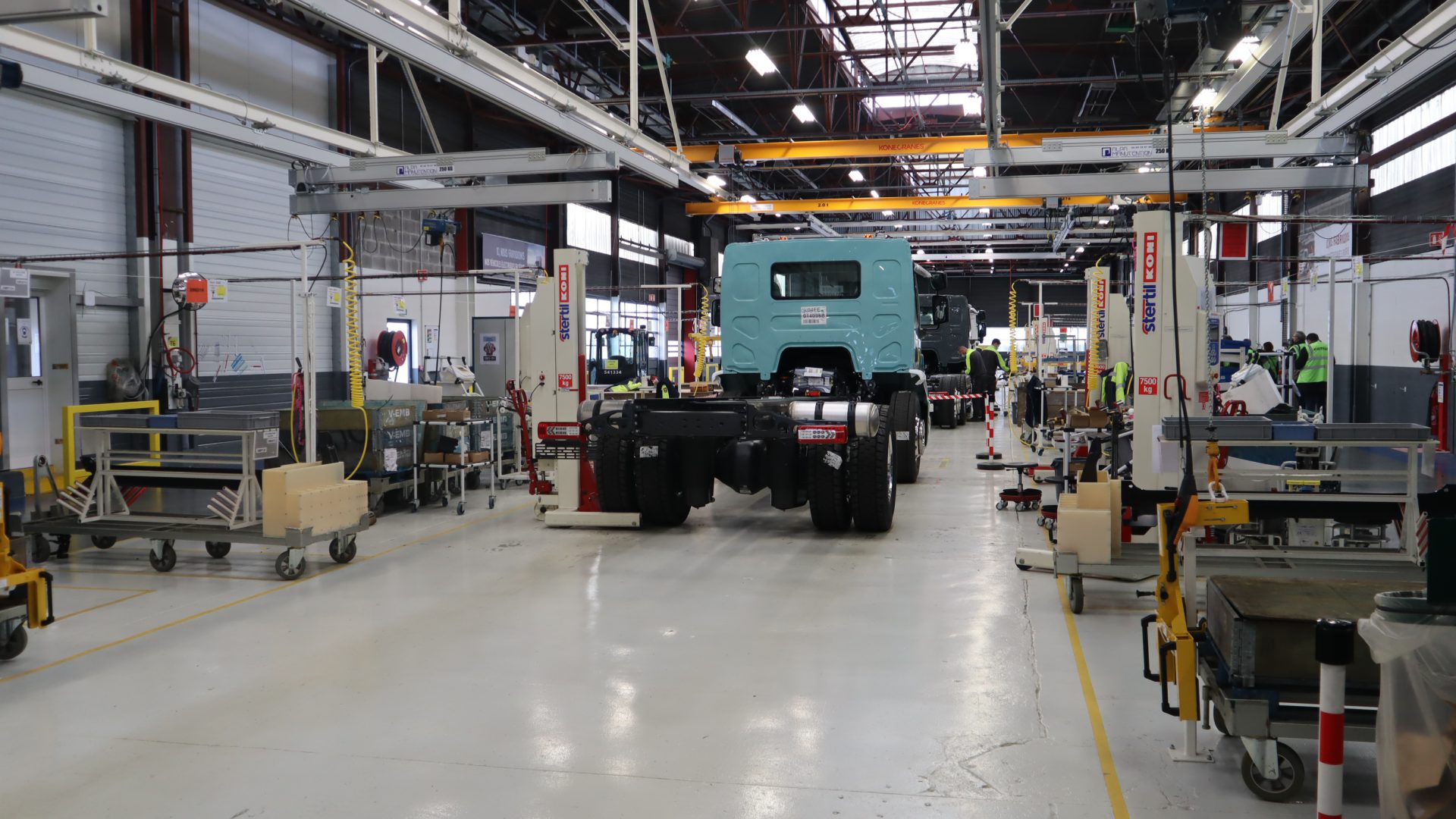
Electric, hence batteries. Renault Trucks has placed its bets on German Akasol, which assembles 650 kg batteries equipped with Korean cells (Samsung Nmc, Nickel Manganese Cobalt). As mentioned, the assembly of the battery packs – as well as the 600V connections – takes place in a separate building, for safety and battery management reasons. Renault Trucks offers customers a choice of different configurations, involving 3 to 6 battery packs. The recommended configuration, and by far the most popular, is that of 4 battery packs of 66 kWh. The Type 2 or CCS Combo 2 charging socket accepts electricity from 22 kW AC wall-boxes or DC with a 150 kW standard.



